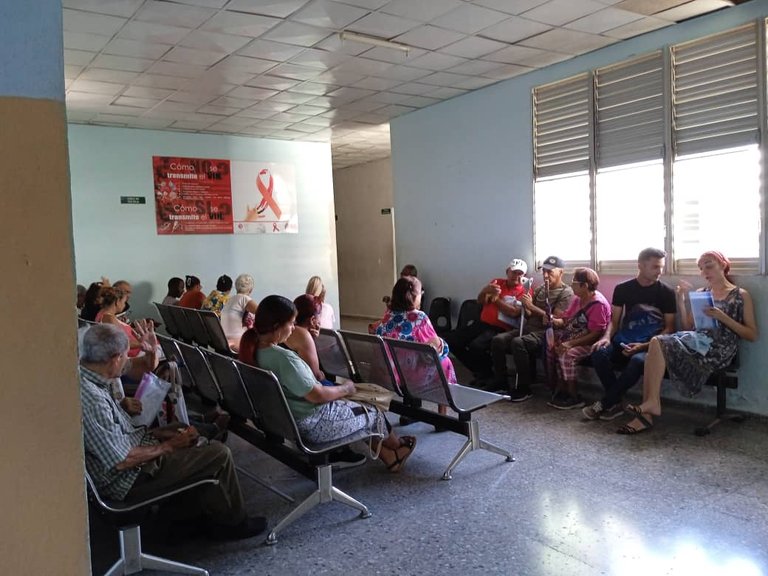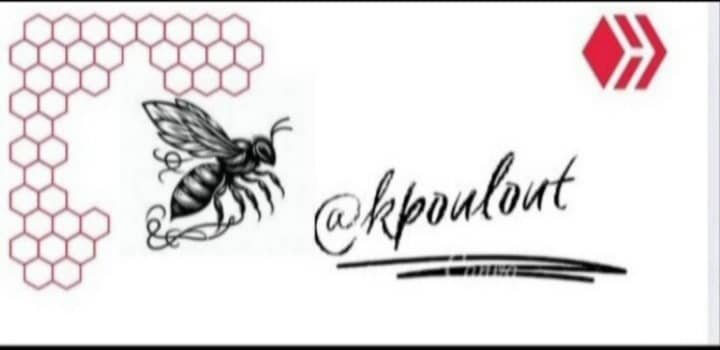EL PRECIO DE LAS GRATUIDADES/THE COST OF "FREE" SERVICES.(ESP/ENG).
Hola, amigos de hive.✨ Sean bienvenidos a mi blog✨. Un cordial saludo para todos.😘🙏.
Todo en esta vida tiene un precio, y no hablo precisamente de dinero. Hay muchas formas de "pagar", porque nada es realmente gratuito en términos absolutos. Por lo general , lo barato, sale caro. Cuando alguien nos presta un servicio sin costo, de alguna manera debemos ajustarnos a las condiciones y requerimientos de esa persona. En otras palabras, a veces, tratando de economizar, perdemos algo que es mucho más preciado, nuestro tiempo. Porque cuando las cosas se pagan con dinero constante y sonante o en especie, el responsable de hacerlas tiene el deber y el compromiso de cumplir con uno, de respetar y prestar un servicio de calidad y eficiencia.

En cambio, cuando las cosas son un favor, quién lo hace se siente con el derecho, y con toda razón, de tomarse su tiempo y resolvernos el problema cuando estime conveniente, sin importarle que quizás la persona está apurada o realmente necesitada y acude a él porque es quizás un amigo y no tiene economía para pagar. Entonces quien tiene el control, se siente empoderado, incluso, en casos extremos, pueden llegar a ser crueles y déspotas.
_ Si estás apurado busca a otro que te resuelva. Si quieres un mejor trabajo, paga.
Esta suele ser la típica respuesta de un "empoderado". Otro riesgo importante que se corre al recibir gratuidades es el relacionado con la calidad del servicio. Siempre he escuchado decir que "el que paga manda". Y es la pura verdad, si pagas, estás en pleno derecho de exigir. Y cuando hablo de exigir, me refiero sobretodo a calidad, eficacia y garantía. Cosas que no siempre se ofrecen cuando no se paga. Profundizando un poco más en el tema, también en las sociedades contamos con algunas "gratuidades".

Aquí mismo, cuando vamos a una consulta médica, que es "gratis", muchas veces somos los primeros en llegar y los últimos en irnos. Y todo porque el médico siempre tiene algunos casos que atender que pueden ser desde un familiar hasta un amigo. Pero como la atención es gratis, pues ni modo.
Otros servicios gratis como la educación y los deportes no son más que una aparente generosidad del Estado, detrás de eso, existen costos económicos, sociales e incluso culturales que rara vez se discuten abiertamente.

Lo gratuito no es más que una sutil ilusión, un cuento, un "duérmete mi niño" que nos cantan para hacernos creer que nos hacen un favor. Los servicios públicos que supuestamente son gratis, están respaldados y financiados mediante impuestos, deuda pública o reasignación de recursos que salen del lomo de los obreros. Todo recurso destinado a gratuidades implica restar fondos a otras áreas. Esto crea un dilema ético y económico ¿es justo que ciudadanos de menores ingresos subsidien servicios que podrían beneficiar a sectores más privilegiados?

Idealizar lo "gratis" como una solución mágica, puede generar distorsiones en la percepción del valor, porque lo que no nos cuesta, no duele. No pienso que la gratuidad en si, sea algo negativo, pero ejercerla requiere de honestidad y empatía y sensibilidad, porque como dice el refrán ... "De buenas intenciones, está empedrado el camino hacia el infierno".


THE COST OF "FREE" SERVICES.
Hello, Hive friends.✨ Welcome to my blog✨. A warm greeting to all.😘🙏.
Everything in life comes at a price, and I’m not just talking about money. There are many ways to "pay," because nothing is truly free in absolute terms. Generally, cheap turns out to be expensive. When someone provides us with a service at no cost, we must somehow adapt to their conditions and requirements. In other words, sometimes, in trying to save money, we lose something far more precious: our time. When things are paid for with hard cash or in kind, the person responsible for delivering them has a duty and commitment to fulfill their obligations, to respect us, and to provide quality and efficient service.

In contrast, when things are done as favors, the person doing them feels entitled—and rightly so—to take their time and solve our problem whenever they see fit, regardless of whether we’re in a hurry or genuinely in need and turning to them because they’re perhaps a friend and we can’t afford to pay. The one in control feels empowered; in extreme cases, they might even become cruel or tyrannical.
_If you’re in a hurry, find someone else to fix it. If you want better work, pay for it.
This is the typical response from an "empowered" individual. Another significant risk of accepting free services is related to quality. I’ve always heard the saying, “The one who pays makes the rules.” And it’s absolutely true—if you pay, you have every right to demand quality, effectiveness, and guarantees. These are things rarely offered when no payment is involved.

Delving deeper, societies also provide certain “free” services. For example, when we go to a “free” medical appointment, we’re often the first to arrive and the last to leave. Why? Because the doctor always prioritizes cases involving family or friends. But since the service is free, what can we do?
Other “free” services, like education and sports, are nothing more than an illusion of state generosity. Behind them lie economic, social, and even cultural costs that are rarely openly discussed.

“Free” is merely a subtle illusion, a lullaby sung to make us believe we’re being done a favor. Public services, supposedly free, are funded through taxes, public debt, or resource reallocations that ultimately come from the hard work of laborers. Every resource directed toward “free” services means diverting funds from other areas. This creates an ethical and economic dilemma: Is it fair for lower-income citizens to subsidize services that may benefit more privileged sectors?

Idealizing “free” as a magical solution distorts our perception of value, because what costs us nothing is often taken for granted. I don’t believe free services are inherently negative, but implementing them requires honesty, empathy, and sensitivity. As the proverb goes: “The road to hell is paved with good intentions.”


Congratulations @kpoulout! You have completed the following achievement on the Hive blockchain And have been rewarded with New badge(s)
Your next target is to reach 70 posts.
You can view your badges on your board and compare yourself to others in the Ranking
If you no longer want to receive notifications, reply to this comment with the word
STOPCheck out our last posts:
Muchísimas gracias 🙏
Ha quedado en el olvida el axioma que reza sobre el derecho del cliente...
Dónde habrá ido aquello de: El cliente merece un trato de respeto....
Así es, mi amigo. Es difícil encontrar servicios de excelencia, incluso pagando. Abrazo 🫂🤗
Incluso pagando... es lo triste del caso...
Y cada vez es peor... Reflejo de esta protección de supervivencia que nos marca. También el precio depende de la moneda, se facilita todo según estés dispuesta y tengas cómo "resolver"
Muchas gracias, querida amiga, por tu comentario. Abrazo 🤗
Te abrazo con toda la luz
Ay, Kenia... Como dice el dicho: lo barato sale caro... imagínate lo gratuito
Ciertamente.🤭😂. Abrazo 🫂🤗
Te digo algo: me comprometí a tratar de pagar cada vez que necesite algún favor de alguien. De esa manera gano tiempo, y como bien dices aseguro que lo que necesito me llegue a mis manos .
Es lo mejor. Gracias por tu tiempo.🙏😘